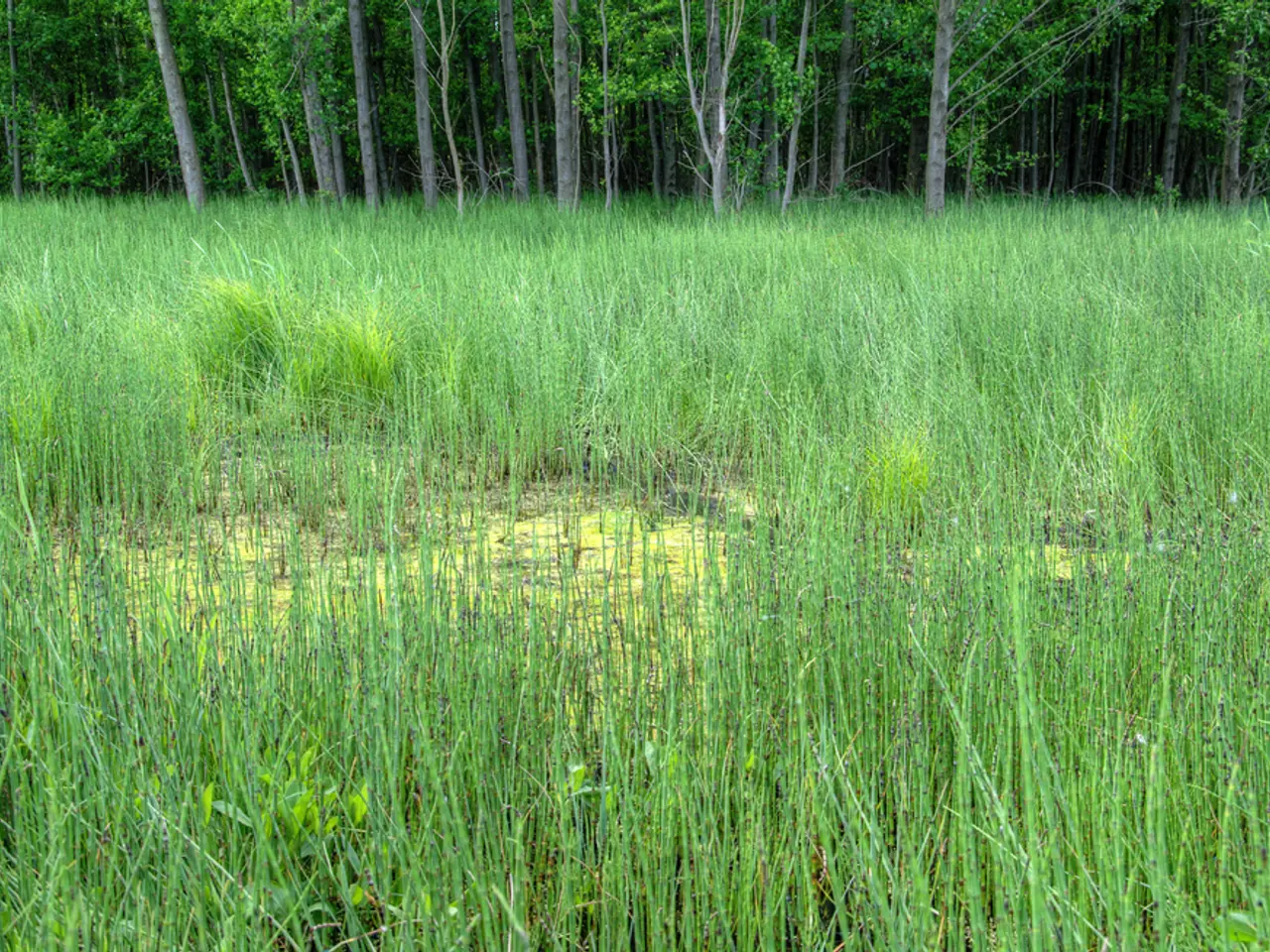Agricultural boundary markers promoting eco-friendly farming practices
The German Ministry of Food, Rural Areas, and Consumer Protection has announced the launch of new field edge signs in the Bio-Model Region Neckar-Odenwald-Kreis. These signs aim to promote and document farmers' efforts in environmental and nature conservation.
The regional manager, Ruth Weniger, is based at the Landratsamt Neckar-Odenwald-Kreis. The signs cover a wide range of topics including promotion of plant and animal diversity, extensive grassland management, care of valuable orchards, cultivation of native protein plants, creation of flowering areas, and crop cultivation with undersowing.
Farmers like Michael and Tobias Schiffmann and Philipp Sack, who are active in the Bio-Model Region Neckar-Odenwald, can benefit from these signs. The Bio-Model Region Neckar-Odenwald-Kreis, which was selected in the second competition and has been active since 2019, includes representatives from the areas of agriculture, food craft, and marketing in its steering circle.
The Bio-Model Region Neckar-Odenwald-Kreis has already been extended twice for three more years each, and the current funding period ends on June 30, 2028. The German Minister of Food, Rural Areas, and Consumer Protection, Peter Hauk, wants to change the way consumers perceive agriculture by informing about various agri-environmental measures using these signs.
The Bio-Model Region Neckar-Odenwald-Kreis deals with topics and projects such as agricultural production, education and awareness, marketing, agriculture, and nature conservation. It is supported by the German Ministry of Food, Rural Areas, and Consumer Protection.
In the future, farmers can register with their local agricultural authority to obtain free field edge signs. The signs will provide immediate information about specific projects on site. The Bio-Model Region Neckar-Odenwald covers the entire area of the Neckar-Odenwald district, including all 27 cities and municipalities.
The Bio-Model Region Neckar-Odenwald offers initiatives like on-farm slaughtering (kLasSE Fleisch), cooking workshops, Bio-Brotboxes for school starters, Bio-Markttag, Regionales Bio im Einzelhandel, BIO Markt Scheune, and Odenwald GenussTaschen.
Philipp Sack, one of the farmers in the region, uses trichogramma wasps to reduce the infestation of the corn borer and protect his crops without using environmentally harmful chemical-synthetic plant protection products. This is just one example of the sustainable practices being adopted by farmers in the Bio-Model Region Neckar-Odenwald.
The German state of Baden-Württemberg is making available an additional 1.5 billion euros for agri-environmental measures from 2023 to 2027. The majority of the funds (around 90%) will be allocated for agriculture. It is hoped that these measures will help to increase public awareness of the Environmental Services provided by farmers in Baden-Württemberg, many of which remain unknown to consumers.
For more information about the Bio-Model Region Neckar-Odenwald-Kreis, contact the Press Office or the Citizen's Representative of the German Ministry of Food, Rural Areas, and Consumer Protection. The details are provided below.
Press Office: Name: [Press Office Name] Address: [Press Office Address] Phone: [Press Office Phone] Email: [Press Office Email]
Citizen's Representative: Name: [Citizen's Representative Name] Address: [Citizen's Representative Address] Phone: [Citizen's Representative Phone] Email: [Citizen's Representative Email]
Read also:
- Nightly sweat episodes linked to GERD: Crucial insights explained
- Antitussives: List of Examples, Functions, Adverse Reactions, and Additional Details
- Asthma Diagnosis: Exploring FeNO Tests and Related Treatments
- Unfortunate Financial Disarray for a Family from California After an Expensive Emergency Room Visit with Their Burned Infant








